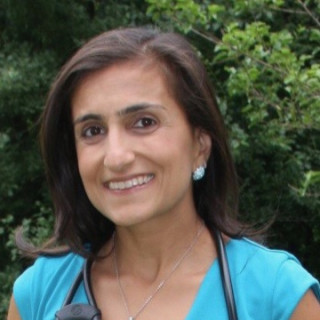As I listened to the plenary on Monday morning, I realized what a full experience this year’s AAAAI Annual Meeting in Phoenix had been; this conference was the first in-person annual meeting since COVID -19 entered our world. As immunologists, we realized the surplus of knowledge to be gained regarding COVID-19 and vaccines and absorbed all the information presented.
However, today I want to take it a step further back. According to work done by Dr. Di Constanzo and presented by Dr. Hugh Sampson at the plenary, the first 1,000 days of an infant’s life are critical to immune modulation. Certain risk factors such as C-section, junk food-based and/or low-fiber diet, antiseptic agents, gastric acid inhibition, and antibiotic exposure can lead to dysbiosis and risk for food allergy development. What if we can work on the prevention and immune modulation of a disease? Food allergies affect 8% of children and 11% of adults in the U.S. and pose significant burdens to families and health care facilities. These range from physical and emotional burdens to social and economic concerns.
Host-microbe interactions in early life are important, with the gut microbiome having rapid changes in early life. We are still working on prebiotics (non-digestible substances that promote the growth of beneficial microorganisms), probiotics (live microorganisms that may benefit the host), and synbiotics (a combination of prebiotics and probiotics) and their role in food allergy. There may also be a role for fecal microbiota transplantation from a healthy to a food allergic host in the protection against a severe allergic reaction.
These advances get to the heart of the issue and what we as allergists and immunologists pride ourselves on, prevention and early modification of disease. Part of that preventative regimen may involve meeting a family with an allergy history before the baby's birth to discuss ways to potentially reduce the development of food allergies. Another goal may involve attempting to induce early oral tolerance in children that present with a food allergy. None of this starts without early and frequent conversations with parents accompanied by continuous education regarding disease prevention and modification. Beyond the innovation and explosion of oral immunotherapy for food allergy in the field of allergy and immunology, preventative care and education are what genuinely give us hope as providers to modify the course of the disease and truly leap ahead for our food allergy patients. So, stay tuned my fellow AAAAI attendees. The food allergy story is far from over. We may have barely just scratched the microbiota-filled surface.
Dr. Bansal is employed by Asthma and Allergy Wellness Center.
Image by Olga Zakharova / Getty







